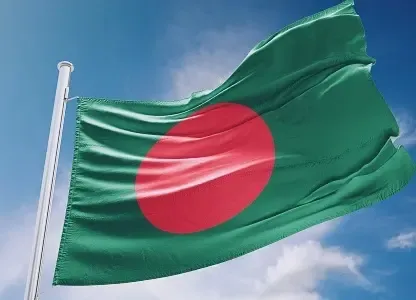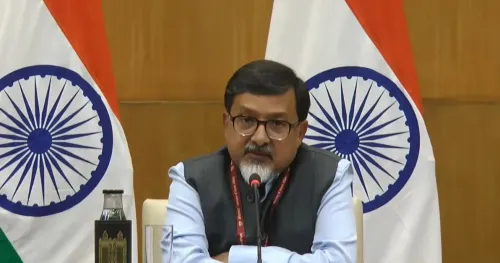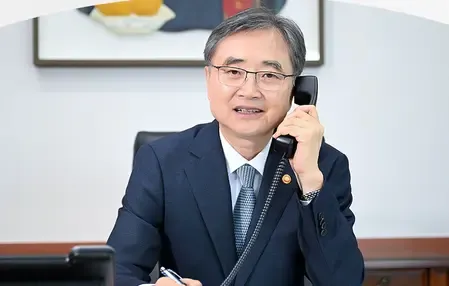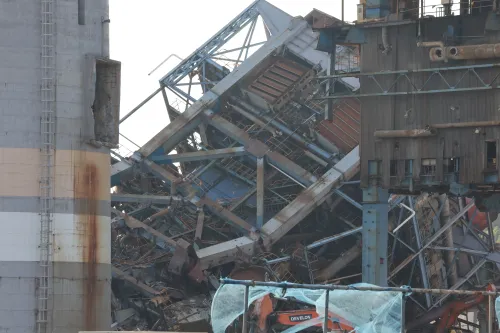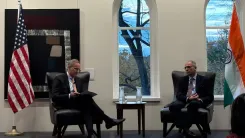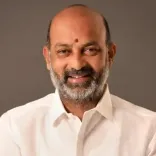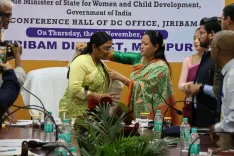PM Modi's Strategic Actions, 'Act East' Policy Positions India as a Key Player in the Indo-Pacific
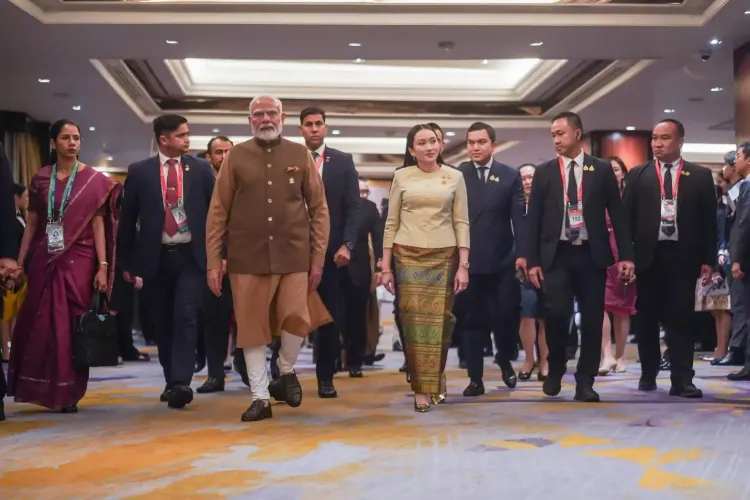
Synopsis
Key Takeaways
- Act East Policy is a cornerstone of India's foreign relations.
- Trade with ASEAN has almost doubled under PM Modi.
- India is now ASEAN's seventh largest trading partner.
- Maritime security and defense collaborations are prioritized.
- Cultural ties have strengthened through education and exchanges.
Bangkok, April 4 (NationPress) India's dedication to its ‘Neighbourhood First’ and ‘Act East’ policies, which resonate with its comprehensive Indo-Pacific vision, has been reaffirmed during Prime Minister Narendra Modi's current visit to Bangkok for the Bay of Bengal Initiative for Multi-Sectoral Technical and Economic Cooperation (BIMSTEC) Summit, gathering leaders from Myanmar, Nepal, Sri Lanka, Thailand, Bhutan, and Bangladesh.
Prime Minister Modi's initiatives, including the ‘Act East’ policy, Vision SAGAR (Security and Growth for All in the Region), ‘Neighbourhood First’ policy, ‘Think West’ policy, and ‘Connect Central Asia’ policy, continue to shape New Delhi's approach to its neighbors and beyond while fortifying historical and civilizational bonds.
Initially launched in 1992, the ‘Look East’ policy was primarily focused on economic relations with Southeast Asia. However, with evolving global dynamics, PM Modi in 2014 infused new energy into India's foreign policy, transforming it into a more robust ‘Act East’ policy that emphasizes decisive actions and outcomes.
Observers note that PM Modi's foreign policy is characterized by dynamism and action, distinctly represented through the execution of the ‘Act East’ policy.
Over the past decade, the ‘Act East’ policy has established India as a proactive and influential entity in Southeast Asia.
While the ‘Look East’ policy mainly centered on trade, PM Modi's efforts have broadened it into a multifaceted strategy encompassing diplomacy, defense, connectivity, and culture. His numerous engagements, high-profile summits, and strategic alliances have bolstered India's standing in the Indo-Pacific, positioning India not merely as a participant but as a leader in regional matters.
This transformation was not solely symbolic but represented a notable strategic shift that prioritized deeper diplomatic engagement, stronger trade collaborations, enhanced security partnerships, and cultural exchanges with Southeast Asia and the wider Indo-Pacific region. The Act East Policy has positioned India as an active stakeholder in these regional affairs.
PM Modi has personally undertaken numerous visits to countries within India's extended neighborhood to further strengthen these connections.
These include multiple trips to Singapore (2015, 2018, 2024) that have solidified economic and fintech collaborations, and three visits to Indonesia (2018, 2022, 2023) where India has advanced its maritime security partnerships.
In 2017, PM Modi made history as the first Prime Minister to visit the Philippines in 36 years, reinforcing India's role in ASEAN security and trade.
His landmark visit to Brunei in 2024 marked the first time an Indian PM visited the nation, highlighting India's growing diplomatic outreach.
In another historic gesture, PM Modi invited all ASEAN leaders to India's Republic Day as chief guests to celebrate 25 years of the ASEAN-India Dialogue Partnership.
Additionally, he has visited Myanmar, Malaysia, Thailand, Laos, and Vietnam, advancing India's strategic and economic agenda in the region.
Under PM Modi's administration, India's trade with ASEAN has nearly doubled, increasing from USD 71 billion in 2016-17 to over USD 130 billion by 2024. India is currently ASEAN's seventh largest trading partner, while ASEAN stands as India's fourth largest trading partner.
To enhance economic connectivity, the Modi government has advocated for infrastructure projects like the India–Myanmar–Thailand Trilateral Highway to facilitate India-ASEAN trade and movement. Direct flight connectivity has also improved significantly, with India now directly connected to several ASEAN nations, fostering business, tourism, and cultural exchanges.
Beyond ASEAN, PM Modi's push for projects like the Agartala-Akhaura railway—the first railway initiative between the North Eastern States and Bangladesh—has improved connectivity between India and Bangladesh and encouraged bilateral trade.
The strategic and defense aspect of the ‘Act East’ policy has also been a crucial focus. India has engaged in maritime security cooperation, especially with nations like the Philippines and Vietnam. A significant milestone under the ‘Act East’ policy is the sale of BrahMos missiles to the Philippines, marking India's emergence as a serious defense supplier in the region. Moreover, India has signed military logistics agreements with Vietnam, enhancing its presence in the Indo-Pacific security architecture.
The Indo-Pacific Oceans Initiative (IPOI), launched in 2019, was a pivotal step towards ensuring maritime stability and freedom of navigation in the region. Further solidifying India's strategic footprint, India and ASEAN conducted their inaugural joint maritime exercise in 2023, aimed at addressing security challenges in the South China Sea and the broader Indo-Pacific.
Beyond trade and security, cultural and people-to-people interactions have been vital in enhancing India's relations with Southeast Asia. PM Modi's ‘Act East’ policy has rejuvenated India's shared Buddhist heritage with Myanmar, Thailand, Laos, Vietnam, and Indonesia, fostering deeper spiritual and historical connections.
Over 300 ASEAN students have received scholarships to Nalanda University, and the Modi government has facilitated educational and cultural exchanges to strengthen ties.
The rising popularity of International Yoga Day in Southeast Asia further demonstrates how cultural diplomacy has become an essential component of India's engagement under the ‘Act East’ policy.
Additionally, Singapore became the first nation to establish fintech connectivity with India, paving the way for digital and economic collaboration across the ASEAN region.
India provided medical assistance, including medicines and supplies, to ASEAN countries during the Covid-19 pandemic.
Emerging as the ‘first responder’, India provided $4 billion in assistance to Sri Lanka between 2022-23, playing a pivotal role in securing the island nation's $2.9 billion IMF bailout. New Delhi also swiftly launched ‘Operation Maitri’, deploying military and rescue teams for relief efforts during the 2015 earthquake in Nepal. In 2018, India dispatched 1.7 lakh tonnes of wheat and 2,000 tonnes of Chana Dal to help alleviate severe drought in Afghanistan.

